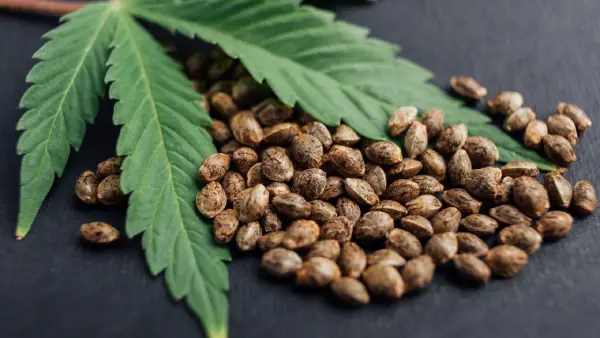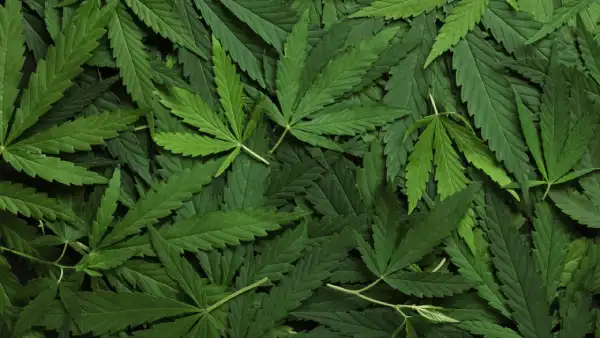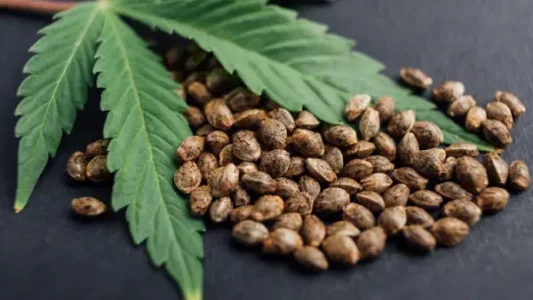Cannabis has long been prized for its many potential medicinal benefits, with over 100 compounds that make up the plant’s chemistry. While some of these substances have received more attention than others – THC and CBD being at the forefront of conversation – there is another important cannabinoid in play: THCA. However, when it comes to understanding the differences between these three compounds – THCA vs CBD – navigating cannabis can be confusing. In this article, we will explore the key distinctions between THCA and CBD, how they interact with one another within the body, and how you can potentially gain greater therapeutic value from them both!
What is THCA?
Cannabis enthusiasts might be familiar with the term THCA. But what is it exactly? Tetrahydrocannabinolic acid, or THCA, is a cannabinoid that is present in unprocessed cannabis flowers. You won’t get high from THCA because it is non-psychoactive, unlike its counterpart THC. Why, then, is it significant? According to some experts, THCA may have therapeutic advantages such as lowering inflammation and safeguarding nerve cells. We are witnessing an increase in the number of products that utilize the power of this “mother cannabinoid” as the cannabis industry continues to innovate. Cannabis enthusiasts are increasingly favoring THCA in their flower, concentrates, and edibles.
Related Link: THC vs THCA: What is the difference?
Can THCA Make You High?
Because of its name, many people mistakenly think that THCA will give them a high. This is not the case, though. THCA is the precursor to THC, but it lacks the psychoactive ingredients needed to give users a high. It can have the desired effect when heated up because it transforms into THC. However, since un-decarboxylated THCA is not psychoactive on its own, it is still permitted for use and sale. THC is still a controlled substance in many places, so this distinction is crucial. People can make wise decisions and use cannabis safely if they are aware of the differences between THCA and THC.
THCA Effect on The Brain
Numerous studies in the fields of health and wellness have focused on THC and THCA, a non-psychoactive cannabinoid present in unprocessed cannabis plants. The possibility that THCA has neuroprotective properties is one of the most important discoveries, making it an intriguing potential candidate for the treatment of a variety of neurological disorders. However, to activate its psychoactive effects, THCA must first undergo decarboxylation, a process that converts it to THC. Once converted, THC can bind with cannabinoid receptors in the brain, altering mood and perception. Despite promising findings, researchers still have much to learn about this fascinating cannabinoid and its potential impact on the brain.
Have you made it a goal to improve your health this year? Don’t hesitate to get in touch with us!
Potential Benefits of THCA
THCA has potential advantages that could make it a useful substance in the cannabis industry even though it won’t get you high like THC will. THCA is especially helpful in environments related to health and wellness because it doesn’t have any psychoactive effects. Additionally, anecdotal evidence suggests that THCA may be able to relieve nausea or gastrointestinal/stomach pain, even though research on cannabinoids is still in its infancy. According to some studies, THCA may also have neuroprotective properties, making it a promising treatment for neurological disorders. Future studies may shed more light on the benefits of THCA, solidifying its position in the cannabis industry as an essential component of health and wellness.

What is CBD?
Hemp and marijuana plants naturally contain the cannabinoid known as CBD, or cannabidiol. CBD (cannabidiol) is not psychoactive like THC (tetrahydrocannabinol), so it won’t result in the typical “high” associated with cannabis use. Instead, CBD works with the body’s endocannabinoid system, which is in charge of controlling a number of physiological processes like appetite, sleep, and immune response. CBD can have a variety of effects and advantages by interacting with cannabinoid receptors all over the body, which makes it a supplement that is growing in popularity. Studies from Harvard Health have suggested that CBD may be able to help with seizures, anxiety, and inflammation, making it a promising option for people looking for all-natural remedies for common illnesses.
Curious as to how our supplements can benefit your health? Visit our blog.
How Does CBD Make You Feel?
Most people are curious about how CBD makes them feel, but you might be surprised by the answer. CBD doesn’t have the same psychoactive effects as THC, which can make you feel happy or “high,” so to speak. Instead, people who struggle with stress, anxiety, pain, or sleep issues say that CBD makes them feel better. When those things are absent, you almost feel lighter and more at ease. The potential benefits of CBD have been thoroughly studied in the cannabis wellness sector. Before incorporating CBD into your daily routine, it’s crucial to discuss CBD use with a dependable primary care physician.
Potential Benefits of CBD
The lack of psychoactivity in this cannabinoid has made it a popular choice for those seeking relief from stress, insomnia, pain, and inflammation. There is hope for the potential treatment of some diseases and conditions thanks to its neuroprotective properties. Although CBD is not a miracle cure, it has shown promise as an adjunct to other therapies. You should discuss the potential benefits and risks of CBD with your regular doctor before starting treatment with it. Given its wide range of possible applications, CBD deserves serious consideration as a holistic approach to symptom management and health enhancement.
The Difference Between CBD and THCA
Although neither produces a psychoactive high, their distinct molecular structures mean they provide distinctive experiences. Cannabidiol, or CBD for short, is a popular cannabinoid that has received a lot of positive press for the potential health benefits it allegedly provides. Conversely, tetrahydrocannabinolic acid (THCA) is the acidic precursor to tetrahydrocannabinol (THC), the cannabinoid responsible for the psychoactive high. The experience of smoking THCA is distinct from that of smoking CBD, despite the fact that neither produces psychoactive effects. It’s important to know the differences between the various CBD compounds, whether you prefer to smoke joints laced with CBD, apply a dab of CBD wax, or take a tincture of CBD under your tongue.
Related Link: Best Ways to Use Delta 8 Tincture – Simple Tips for Optimal Results
THCA vs CBD: Understanding the Contrasts and Distinctions

We’ve seen that there is a distinct difference between THCA and CBD as two important cannabinoids. Despite the fact that both have a significant potential to improve health, their unique qualities imply that they should be used and targeted in different ways depending on the desired result. You can choose your cannabinoid intake more wisely and possibly increase the effectiveness of your chosen products by being aware of the characteristics of these two compounds. Expanding our understanding of the subjects covered today can help us realize the full potential of cannabinoids for a variety of medical uses. We get one step closer to discovering holistic remedies for many health issues with more research into how THCA and CBD interact with other molecules in our bodies as well as each other.
Related Link: THCV Gummies: ‘Diet Weed’ For Weight Loss
The information and content in this article are intended for informational purposes only. It should not be a substitute for professional or medical advice. You should always speak with a licensed professional before you follow anything you read online.
Disclaimer:
The statements made regarding these products have not been evaluated by the Food and Drug Administration. The efficacy of these products has not been confirmed by FDA-approved research. These products are not intended to diagnose, treat, cure or prevent any disease. All information presented here is not meant as a substitute for or alternative to information from health care practitioners. Please consult your health care professional about potential interactions or other possible complications before using any product. The Federal Food, Drug and Cosmetic Act requires this notice.



